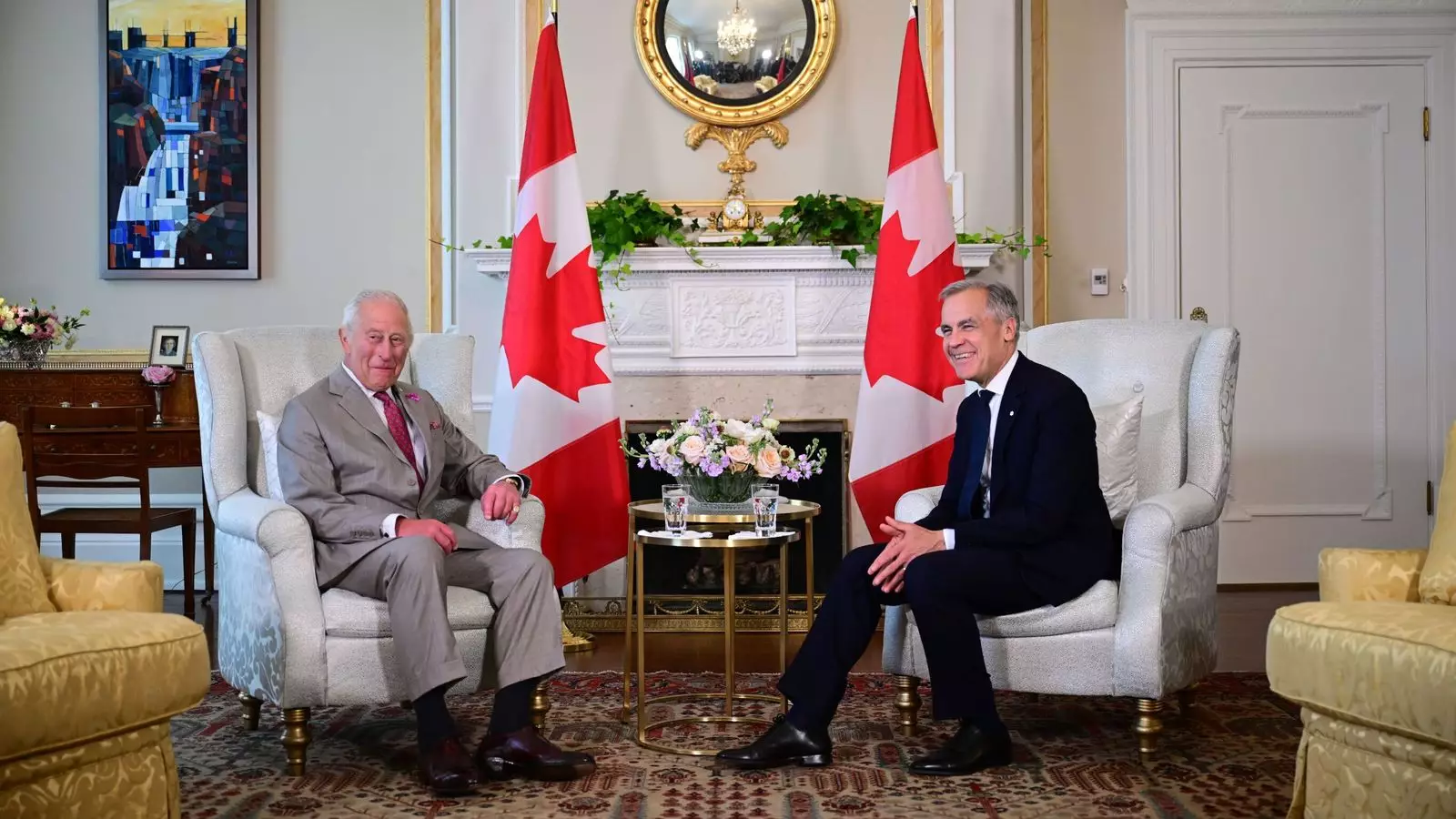The historical trauma inflicted upon the so-called “Home Children” remains a gaping wound in the historical narrative of both Britain and Canada. These children, often from orphanages or impoverished backgrounds, were exported en masse to Canada between 1869 and 1948, under a misguided initiative that promised them hope and a better life. Instead, they faced relentless exploitation, forced labor, and often horrific abuse. As King Charles and Queen Camilla prepare to undertake a visit to Canada, the spotlight intensifies on their potential role in addressing these long-silenced injustices. Campaigners are urging them to meet this pivotal moment with moral courage, advocating for an official apology to acknowledge the suffering endured by these innocent lives.
The numbers tell a stark tale. Over 100,000 British children were sent to Canada, largely portraying them as a cheap workforce—predominantly as agricultural laborers and domestic servants. These children were stripped of their identities and transformed into expendable assets, riddled with shame and trauma. Their plight has garnered renewed focus, particularly from descendants who continuously seek acknowledgment and restitution. John Jefkins, a grandson of one of these Home Children, articulates this need for recognition, underscoring the profound psychological and emotional reparations that an apology would represent for survivors and their families.
The Reluctance of a Nation to Acknowledge Its Past
The Canadian government’s reluctance to issue an apology stands as a stark reminder of how nations can dodge accountability for their historical transgressions. In contrast to the UK and Australia, which have publicly recognized the injustices faced by these children, Canada has been hesitant to engage with this uncomfortable chapter of its own history. This inertia is galling, especially considering Canada’s self-portrayal as a progressive, compassionate nation. An apology does not merely function as a symbolic act; it is vital for healing, reconciliation, and fostering a collective self-awareness in society.
Jefkins pointed out that King Charles’s visit to Canada offers an almost serendipitous opportunity to confront this historical oversight. As he meets with the new Canadian Prime Minister, the moment is charged with possibilities for change. When royalty intervenes by advocating for the voiceless, it catalyzes an urgent dialogue around morality and justice. The question remains: will these figures of authority act as conduits for healing, or will they further envelop the past in silence?
A Plea for Compassion in Leadership
Royalty has often occupied a dual space; they are symbols of tradition while also being anchors for societal change. King Charles, throughout his life, has expressed a concern for social justice and environmental sustainability; it is a vital test of his character whether this visit extends to acknowledging historical grievances. The context of this engagement with Canada’s history and the plight of the Home Children gives the monarchy an extraordinary platform to not only address these traumas but to rally collective action toward healing.
The Canadian government’s formal recognition of policy failures related to the Home Children is an essential step, but alone it is insufficient. The ongoing struggle for acknowledgment and the impact of historical trauma require not just an official statement but a culture of transparency and empathy towards these issues. Such compassion must flow from the halls of power to the grassroots, investing in educational programs that encompass the narrative of those wrongly treated as mere commodities.
The Imperative of Historical Reckoning
The path to reconciliation is often fraught with discomfort and resistance; however, the very essence of progress lies in confronting our best and worst selves. By harnessing the royal platform to advocate for an apology, King Charles and Queen Camilla could ignite a broader discussion on the values of compassion, inclusivity, and recognition of wrongs that have defined so many lives. As Canada celebrates its identity, it is equally crucial to remember the hidden figures who contributed to its formation—the children who arrived under dire circumstances but were relegated to the shadows of history.
In a society that purports to uphold values of justice and equality, it is vital to recognize the unextinguished humanity of the Home Children and their descendants. Only through sincere acknowledgment and reparative action can we begin to unravel the psychological knots tied by years of marginalization. The royal family holds immense symbolic weight; their actions can resonate far beyond the ceremonial legacy, potentially changing the discourse around historical injustices for generations to come.

